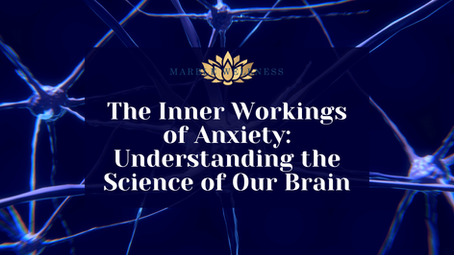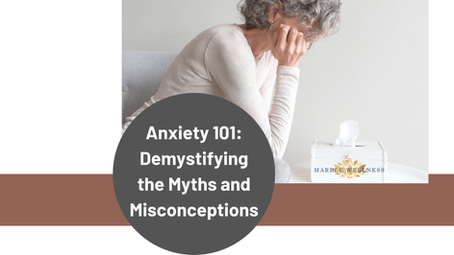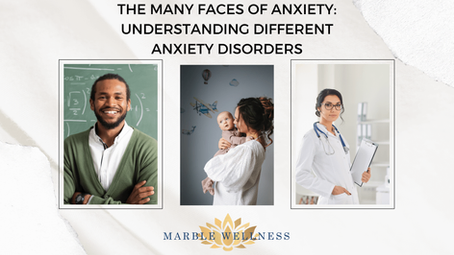
The likelihood that you’ve experienced some anxiety in your life is, well, 100%. I can give that 100% level of confidence because here’s the truth about anxiety: it is a naturally occurring emotional response that we are wired to experience. It is normal to have anxiety as a response to certain conditions, environments, or incidents in our life.
I make this overt statement to help people understand that in treatment for anxiety the goal is not to get to a zero level.
The goal, instead, is to recognize what anxiety you’re experiencing is maladaptive. And then to change that in the three following ways: frequency; intensity; and duration. Huh? Here’s what I mean.
In anxiety counseling, your therapist is going to work with you to help you experience fewer instances of anxiety (frequency); a less extreme or chaotic response when you do have it (intensity); and a shorter amount of time you feel it, essentially helping you “come down quicker” (duration).
The types of ways therapists do this vary—it comes down to type of counseling the therapist uses, often called “therapeutic orientation” or “counseling modality.” For the purposes of this blog, that part doesn’t serve us. The point is, one counselor might do it differently than another, but any anxiety therapist is going to head toward those goals.
Often, people don’t seek treatment for anxiety because they “just accept it’s going to be this way.” They feel defeated because for so long the anxiety has ruled sovereign. And they don’t really see it doesn’t have to be like that. Guess what? It doesn’t have to be like that.

Other times, people manage anxiety through medication and the medication does a good enough job that they don’t pursue further treatment. I get it. But I’m still here to say that counseling for anxiety can be an impactful addition to anxiety management while on medication. Hey, you may even be able to get to the point that your behavioral and cognitive changes in anxiety management are so effective you don’t need the medication anymore (please review with your medical doctor before choosing to stop medication of any kind, but especially medication for mental health issues).
Sometimes people don’t seek counseling for anxiety because they are experiencing symptoms that don’t really feel like anxiety. Or, a personally favorite reason: they believe that for all the “bad” the anxiety introduces to their life, it also has a lot of good in it…..for example, some anxiety that things “aren’t perfect” drive them to perfectionistic behaviors and surely that’s how that grade was achieved; promotion earned; kids’ Halloween costumes the best in their classes. Some symptoms that can be related to anxiety but sometimes aren’t realized as such include: frequent irritability; inability to slow down and/or relax; anger outbursts; often feeling like “things” can change at any minute (the status of your job; your romantic relationship; your financial situation) when there isn’t evidence of such; expecting others to perform at the same level as you all of the time.
(Sound like you…..? You didn’t know that was maybe, possibly something else going on….? You just accepted it as part of your “Type A” achiever personality? I hear you. (I’ve even been there a bit.) But beautiful news: you can release yourself of these behaviors without losing the achievements. (Swear.)
So, with all of this being said about anxiety, how do you know when it is time to call a therapist about anxiety? What are some reasons to start counseling for anxiety? Let me give you a solid, but quick, rundown:

1. You can feel your behavior
Usually fueled by your anxiety or an anxiety-adjacent emotion—starting to affect some relationships. And not in a good way.
2. You want to have more good moments with your kids and spouse.
3. You want your sleep to be deeper and you want to wake up without having a pit in your stomach.
4. You’re tired of your anxiety showing up and ruining a perfectly good event (wedding; birthday party; vacation).
5. You’ve tried to manage it on your own and at worst, nothing has changed. At best, things have been moderately managed.
6. You want to stop the racing thoughts from controlling you.
7. Bonus reason: You want to end the somatic symptoms. (The headaches, stomachaches, or frequently racing heart that happens when you have an anxious response.)

Doesn’t that sound so good? I think it sounds amazing! And I am so excited when clients discover they can live a life that is free from that tightly wound way of operating they’ve grown so used to. When they come into the office feeling victorious about a situation they handled with ease that previously would have had them down for the count for a few days. When they learn they can essentially “say no” to anxiety and move right along with their day…..with that fun event….with that good family moment.

This can be you, too. Whether you’re looking to start anxiety treatment in Missouri, or you’re somewhere else in the country, give a therapist a call. Let them know you’re ready to live a life that is more yours and less anxiety’s.
You can do it, and it will feel so good when you’ve achieved it.
Talk to you soon!
Start Therapy for Mental Health in St. Louis
If you live in St. Louis and are ready to improve your mental health, we are here to help.
Contact Us!

Additional Counseling Services at Marble Wellness in St. Louis, MO and Chicago, IL
Counseling services designed to help set you on a path of living a more fulfilled, calm, and happy life.
St. Louis
Our St. Louis team of therapists have a variety of training backgrounds and areas of expertise. We specialize in anxiety, depression, grief, chronic illness, therapy for men, couples, and maternal overwhelm. We can also help new moms with various postpartum concerns, moms in the thick of parenting, and moms with teens. We can also chat from wherever you are in the state with online therapy in Missouri and online therapy in Illinois. No matter where you are in your journey, we would love to support you.
Chicago
Our Chicago team of therapists offer a wide range of mental health services to help our clients through the different challenges and hurdles in their life. In addition to anxiety, depression, grief, therapy for men, and maternal overwhelm, we are specialized in professional burnout, therapy for breakups, and love partnering with working moms.



